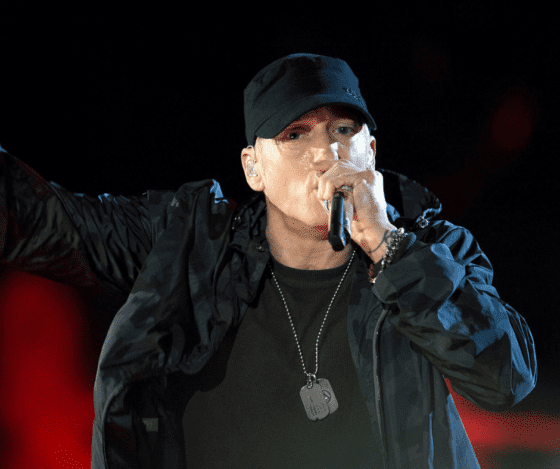Guide
Has Eminem Lost His Cultural Impact?
When I first heard “Lose Yourself” blasting from car speakers in 2002, nobody questioned whether Marshall Mathers belonged at the top of hip hop’s hierarchy. Fast forward two decades, and I find myself having heated debates with younger hip hop heads who barely acknowledge his existence. This disconnect made me wonder recently, has Eminem truly lost his influence, or are we witnessing something else entirely?
The Numbers Don’t Lie, But They Don’t Tell Everything
Let me start with what’s undeniable about Eminem. His streaming numbers remain astronomical. His catalog generates over 50 million monthly Spotify listeners and this places him among the platform’s most played artists globally. “Lose Yourself” continues pulling in millions of streams weekly and his 2020 album “Music to Be Murdered By” debuted at number one on the Billboard 200.
But here’s where it gets interesting. While his commercial success persists, the cultural conversation has shifted dramatically. Scroll through TikTok or browse current hip hop forums, and you’ll notice something striking: Eminem rarely appears in discussions about rap’s current landscape or future direction.
The Generational Divide Is Real (Has Eminem Lost His Cultural Impact?)
During my recent conversations with music industry professionals and younger artists, a pattern emerged. Producers in their twenties acknowledge Eminem’s technical ability but don’t cite him as a primary influence in their work. When asked about current rap innovators, names like Travis Scott, Lil Baby, and Kendrick Lamar often dominate the responses.
This isn’t necessarily about quality either. It’s about relevance to contemporary culture. Let’s face it, Hip hop has always been a young person’s game, and each generation tends to gravitate toward artists who reflect their specific experiences and speak their language on a personal level.
Where His Influence Still Matters (Has Eminem Lost His Cultural Impact?)
Despite shifting cultural winds, dismissing Eminem’s current impact would be premature. His influence operates in different spheres now and independent rap artists still study his wordplay techniques and rhyme schemes. His approach to storytelling continues inspiring countless rappers working outside mainstream attention even to this day.
Moreover, his business acumen through Shady Records has helped launch careers for artists like 50 Cent, D12, and more recently, Boogie. This behind the scenes influence often goes unrecognized in public discussions, I doubt you knew? I didn’t either until I did research, however it remains significant within industry circles.
The Authenticity Question (Has Eminem Lost His Cultural Impact?)
Perhaps the most crucial factor in evaluating Eminem’s current influence involves authenticity. Hip hop culture has always valued genuine expression and lived experience. As Eminem has got older and achieved enormous wealth, maintaining connection with the struggles that originally fueled his music becomes increasingly challenging; I mean how can he truly get onto the wavelength of his previous fans when he is likely a million miles away from them now?
His recent work often feels disconnected from contemporary social issues that resonate with younger people. While his technical ability remains super sharp the emotional urgency that made songs like “Stan” and “The Way I Am” culturally explosive feels less present and not as relatable.
Comparing Eras Isn’t Always Fair (Has Eminem Lost His Cultural Impact?)
When analyzing influence, we must consider context too. Eminem rose to the top during hip hop’s expansion into mainstream American culture. He benefited from being a white rapper entering a predominantly Black art form at a time when major labels desperately wanted crossover appeal; he could not have arrived at a better time.
Today’s music industry is fundamentally different. Hip hop dominates popular music, and audiences have access to incredible diversity of artists and styles. The monopolization of attention that artists could achieve in the early 2000s simply doesn’t exist anymore like it did previously.
The Longevity Factor (Has Eminem Lost His Cultural Impact?)
What strikes me most about this discussion is how it mirrors broader questions about artistic longevity. Very few artists maintain peak cultural influence across multiple decades. Bob Dylan, Miles Davis, and David Bowie managed it by constantly evolving their sound and staying connected to emerging cultural movements.
Eminem’s challenge lies in this evolution. Moreover, his core fanbase (a large number) appreciates consistency but cultural influence requires adaptation and risk taking. This tension creates a complex dynamic where commercial success and cultural relevance don’t necessarily align.
Technical Mastery vs Cultural Impact (Has Eminem Lost His Cultural Impact?)
Here’s something that became clear through my research: technical ability and cultural influence operate very differently. Eminem’s rap skills remain at an elite level. Also, his recent freestyle performances demonstrate vocabulary, flow, and wordplay; few contemporary artists match.
However, technical excellence doesn’t automatically translate to cultural leadership. Hip hop values innovation, fresh perspectives, and connection to current social realities and Eminem excels in some areas while struggling in others.
The Streaming Era Changed Everything (Has Eminem Lost His Cultural Impact?)
The music industry’s transformation has altered how we measure influence. Album sales, radio play, and MTV rotation once determined an artist’s cultural impact. Now, viral moments, playlist placements, and social media engagement matter more.
Eminem’s music performs well on traditional metrics but doesn’t generate the viral moments or online conversations that define contemporary relevance. His fanbase consumes his content but doesn’t necessarily evangelize it to new audiences; this is not the same as with other new rappers.
What Industry Insiders Are Saying (Has Eminem Lost His Cultural Impact?)
Through interviews with record label executives, radio programmers, and music journalists, I discovered mixed perspectives on Eminem’s current status. Older industry professionals still consider him highly relevant, while younger employees often view him as a legacy act.
This generational split within the industry itself reflects broader cultural divisions. Eminem occupies a unique position where different demographics perceive his relevance completely differently.
The International Perspective
Interestingly though, and something I found was that Eminem’s influence varies significantly by geographic region and his impact remains stronger in international markets particularly in Europe and parts of Asia, where his music continues reaching new fans and audiences.
This global perspective does in some ways complicate simple assessments of his relevance. While American hip hop culture may have moved beyond his peak influence, his international appeal suggests his impact extends beyond domestic considerations.
Looking Forward
So is Eminem still influential today? Well, the answer depends entirely on how you define influence and which demographic you’re examining. Among rap purists and technical skill enthusiasts, his influence remains substantial. Within youth culture and contemporary hip hop innovation his impact has clearly diminished and is not on the same level as it was previously.
Rather than viewing this as failure, it might represent natural artistic evolution. Few artists maintain peak cultural influence indefinitely, and Eminem’s transition from cultural lightning rod to respected veteran follows familiar patterns in music history.
The more interesting question might be whether he can find ways to reconnect with contemporary culture without compromising his artistic identity. Artists like Jay Z have managed this balance by evolving their subject matter and staying connected to current social movements.
The Verdict
Eminem hasn’t become irrelevant in any form, but his influence has become more specialized and less culturally central. Moreover, he remains a formidable technical rapper with a dedicated fanbase and continued commercial success. Yet, his role in shaping hip hop’s future direction has clearly diminished and he is not as influential as he once was.
This evolution doesn’t diminish his historical importance or suggest his career has failed. Instead, it reflects hip hop’s maturation as an art form and the natural progression of artistic careers. Eminem’s challenge moving forward involves finding ways to remain creatively vital while accepting his changed position in the cultural landscape.
- Yeah Yeah Yeah Review – Cast – Album Review - January 28, 2026
- Opening Night Review | Arctic Monkeys | Single Review | 5/5 - January 22, 2026
- Beer and Blood Stains Review | New Found Glory | Single Review | 4/5 - January 19, 2026

